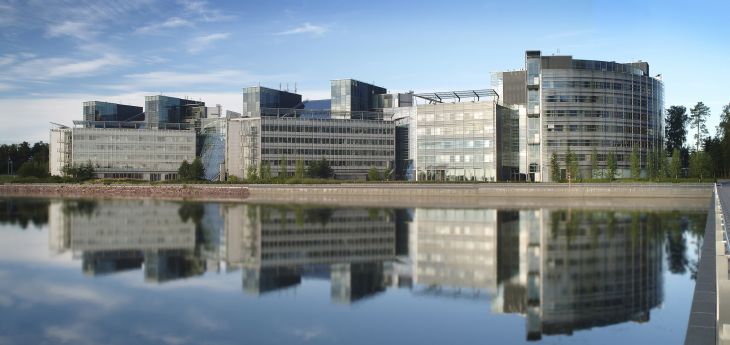Timo Ihamuotila, Nokia's CFO, said:
"We had a comprehensive sales process with both Finnish and foreign investors and we are very pleased with this outcome. As we have said before, owning real estate is not part of Nokia's core business and when good opportunities arise we are willing to exit these types of non-core assets. We are naturally continuing to operate in our head office building on a long-term basis."
As we noted earlier this year there are a number of advantages for Nokia:
For Nokia there would be two advantages. Firstly it would raise capital in the short term, perhaps as much as €300 million, which given the company's current financial position would be beneficial. Moreover money tied up in real-estate is effectively unavailable for investment into core business activities. Secondly the company would no longer be directly responsible for maintaining the building, and therefore the overhead costs associated with the office would be more predictable over the long term.
While Nokia has not raised as much capital as originally suggested, the main savings come from the predictability of long term rents and services fees, which gives the company better control when planning long-term expenditure.
While the sale of a corporate headquarters building is not unusual, it will nonetheless be seen as indicative of Nokia's financial health. It is fair to say that Nokia has been prompted to make this decision because of the losses generated in the last two years, but at the same time it underlines the efforts being made to make the company's cost structure as efficient as possible.

